Did you know that women who engage with green spaces regularly are up to 60% more likely to report improved mental health and happiness? Far beyond just growing plants, gardening and joyfullness have become intertwined keys to unlocking emotional well-being and resilience, especially for women. In today’s fast-paced world, learning how to harness the gentle power of a blooming garden may be the secret to a happier, more empowered you. Let’s dive into the surprising science, personal stories, and practical tips that make gardening so much more than a hobby—it’s a wellness revolution you can start today.
An Unconventional Fact: The Surprising Link Between Gardening and Joyfullness in Women
While most might see gardening as mere leisure, recent studies reveal that the joy of gardening holds a profound impact on women’s well-being. Inside every lush green space, from a tiny potted plant to a sprawling backyard, lies a unique opportunity to nurture both body and mind. The act of gardening—digging, planting, tending—naturally lowers blood pressure and reduces feelings of loneliness and isolation, especially during middle age and beyond. For many women, spending time in a garden is not just about physical effort; it’s about carving out moments of serenity and self-connection that are rare in modern daily life.
Notably, the benefits of gardening go beyond the immediate sense of satisfaction. It enables women to experience the natural world, cultivate patience through growth habits, and boost their mental health. The subtle transformation that occurs through connecting with nature can reduce stress, improve mood, and foster joyfullness that lasts long after the gardening tasks are done. The surprising twist? Even women with limited outdoor space—those with only a window box or a small collection of indoor plants—can still experience these remarkable benefits. It’s the regular connection with nature, not the garden’s size, that creates lasting emotional wellness.
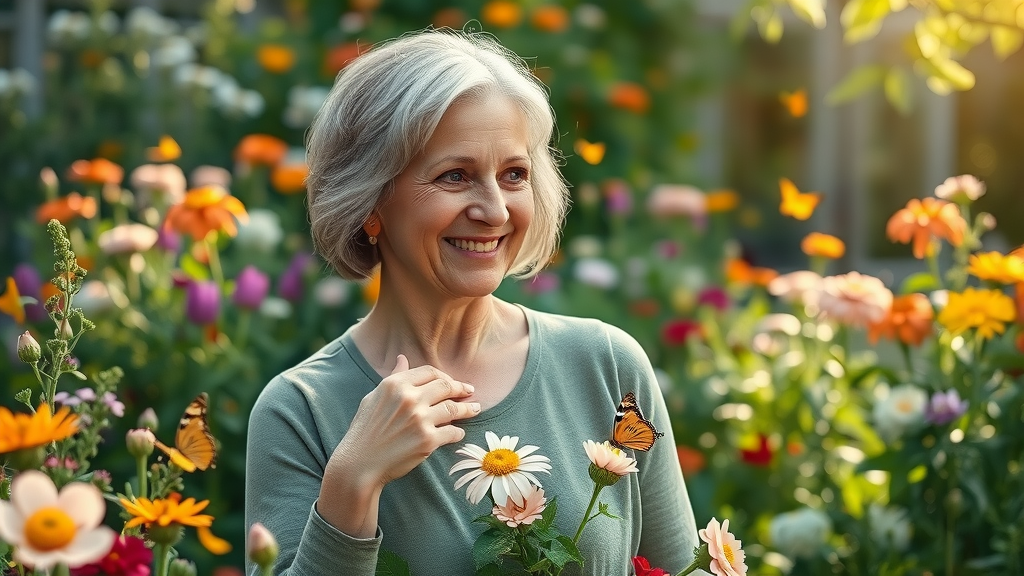
What You'll Learn About Gardening and Joyfullness
- How green spaces elevate mood and mental health for women
- The essence and transformative power of the joy of gardening
- Connecting with nature and its unique impact on women’s emotional balance
- Practical benefits of gardening for emotional and psychological wellbeing
- Strategies to incorporate joyfullness into your gardening routine
The Joy of Gardening: A Personal Perspective on Gardening and Joyfullness
For many women, green spaces serve as sanctuaries—havens where worries dissipate and clarity unfolds. The joy of gardening often begins with simple steps: planting seeds, tending soil, or watching a flower bud open with the season. Over time, these small acts create profound connections, quietly strengthening emotional resilience. Engaging with a vegetable garden or maintaining a physic garden isn’t only about nurturing plants; it is about nurturing oneself and recognizing the beauty of growth, both outside and within.
As women immerse themselves in the act of gardening, they often discover a gentle detachment from the demands that may otherwise feel overwhelming. Tending to the growth habits of flowers and plants mirrors our own journeys through change and renewal. The green space becomes more than just a plot of land—it is a breathing extension of self-care, empowering physical and mental health in a way that feels both intentional and natural. Each moment spent gardening offers a reset, a tangible reminder that happiness can be found in the simplest connections with the earth.
Green Spaces and the Natural World: Sanctuary for Mind and Body
“Gardening allows women to reconnect with themselves and the natural world, offering a respite from the demands of daily life.”
Green spaces are more than visual delights; they act as sanctuaries for a woman’s mind and body. Whether it’s a vegetable garden bursting with color or a tranquil yard brimming with bird feeders and gentle blooms, these environments foster a connection with nature that is uniquely restorative. Scientific research continues to highlight the mental health benefits of green spaces, from lowering anxiety to boosting self-worth and purpose. It’s in these sacred moments of gardening—whether spent alone or in the company of others—that many women rediscover peace and a profound sense of joyfullness.
The natural world, when engaged through gardening, encourages mindfulness and a healthier lifestyle. Activities like planting, pruning, and simply observing the growth habits of various plants provide structured routines that aid emotional balance. Time spent in green spaces encourages reflection and personal growth, gently nudging women towards improved cardiovascular and mental health. Ultimately, the act of reconnecting with nature through gardening serves as a powerful reminder: every woman deserves a private sanctuary of healing and joy.
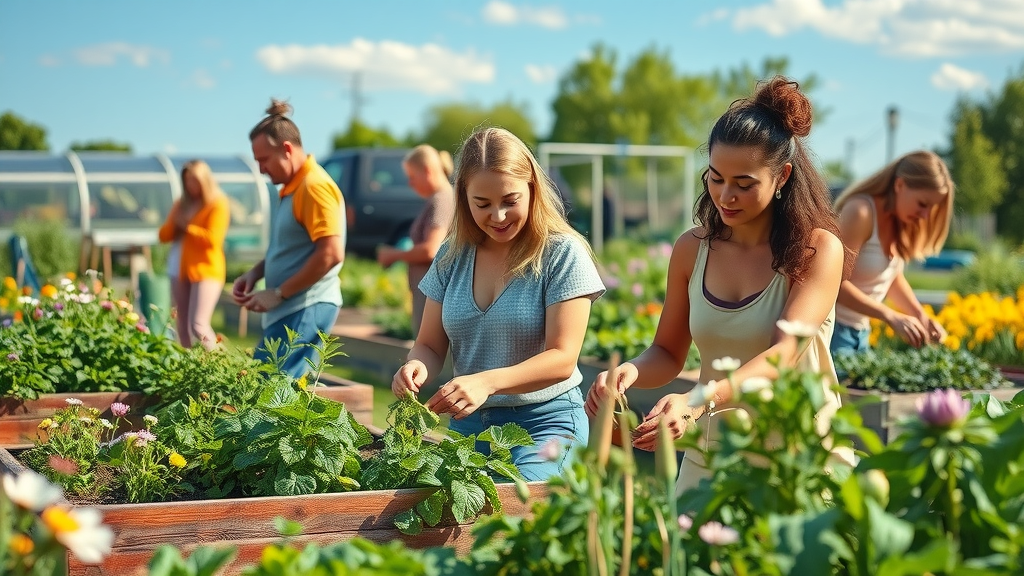
Connecting with Nature: How Gardening and Joyfullness Foster Emotional Resilience
At the core of gardening and joyfullness is the transformative experience of connecting with nature. This connection builds emotional resilience by offering women a practical escape from daily stressors and a chance to immerse themselves in something larger than themselves. Such emotional resilience is not just about facing challenges, but about finding new ways to thrive—through the sights, scents, and gentle rhythms of the natural world. Every stage, from planting seeds to harvesting, grants a growing sense of achievement and calm.
Practices that strengthen your bond with green spaces are as varied as your garden itself. Prioritizing regular gardening tasks, spending a few hours a day outdoors, or even tending to indoor potted plants can foster a profound impact on well-being. Each act—however small—draws you further into a personal relationship with the earth, grounding your thoughts and emotions while steadily building emotional wellness. These mindful rituals, repeated over time, bolster resilience and cultivate lasting joy that endures beyond the garden gate.
- The stages of connecting with nature through gardening: Begin by simply observing your green space. Notice the colors and sounds, and allow yourself to pause. Next, engage in gentle gardening tasks—watering, weeding, harvesting—that anchor you in the moment. Over time, these habits create a deeper appreciation for cycles of growth and renewal.
- Practices to strengthen your bond with green spaces: Incorporate breathing exercises, mindful observation, and even journaling about your garden’s growth. Invite others to join your gardening routine, and share the sense of purpose that comes from cultivating life together.
- Ways gardening and joyfullness build emotional wellness in women: Gardeners often report higher self-esteem, reduced stress, and greater overall happiness. By tending to plants, women cultivate not just gardens but also inner peace and resilience that spill over into every area of life.
Benefits of Gardening and Joyfullness for Women’s Mental Health
The benefits of gardening for women’s mental health are remarkable and well-documented. Engaging in gardening tasks lowers stress hormones, improves focus, and creates a reliable source of joy. The green space serves as a gentle sanctuary, where everyday anxieties and the burdens of multitasking can be replaced by purposeful, soothing routines. Research shows that even short periods spent in these natural environments lead to measurable improvements in physical and mental health indicators, including reduced blood pressure and better immune function.
Gardening and joyfullness also act as antidotes to modern loneliness and isolation—feelings that are particularly acute for women balancing family, career, and personal growth. In tending to gardens, women find purpose and community, whether by exchanging seeds with a neighbor or participating in community gardens. Over time, the profound impact of these tiny rituals accumulates, empowering women to nurture not only their plants but also their mental and emotional landscapes.
| Benefit | Gardening | Joyfullness |
|---|---|---|
| Stress Reduction | Lowers cortisol & blood pressure | Creates lasting calmness & balance |
| Increased Happiness | Sense of achievement with every bloom | Amplifies positive feelings daily |
| Improved Focus | Encourages mindful attention | Heightens presence and clarity |
| Enhanced Self-Worth | Builds confidence through nurturing | Strengthens positive self-image |
Green Space as a Tool for Emotional Restoration
Interacting with a green space isn’t just a restful escape—it’s a strategic tool for emotional restoration, especially for women navigating the challenges of modern life. Whether it’s the satisfaction of growing plants from seed, harvesting vegetables from your own patch, or tending to a single potted plant on a balcony, each act helps restore emotional balance. These activities encourage a deeper connection with the earth, providing a counterbalance to technology and urban environments that often feel overwhelming.
Gardening offers a structured path to mental health, anchoring women to the rhythms of the natural world and helping them process stress in a healthy, constructive way. When physical and mental exhaustion creep in, stepping into a green space allows for a powerful reset—one that doesn’t just restore, but also uplifts. Through the simple act of gardening, women unlock self-worth, gratitude, and an ever-renewing source of joy.
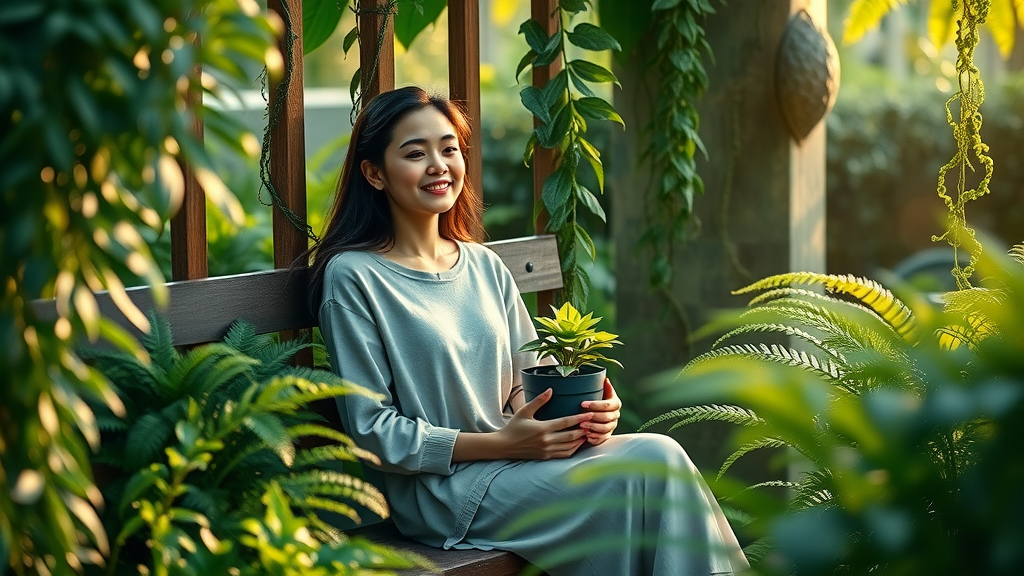
Practical Benefits of Gardening and Joyfullness: From Stress Relief to Self-Empowerment
For women, the rewards of gardening and joyfullness are immediate and long-lasting. In just a few hours a day—or even a small window of time—you can experience mood boosts and a sense of clarity that can shift the rest of your week. The immediate mood lift after connecting with nature can feel almost magical: worries fade, anxieties lessen, and the world seems a little brighter.
Yet, the deepest benefits come with consistency. Long-term gardening, such as nurturing a successful garden through the seasons or joining a community green space project, reinforces self-empowerment. You learn patience, witness tangible results from your care, and feel a part of the ongoing dance of the natural world—elements that are especially beneficial for the gardener’s personal development. This regular connection with nature creates a legacy of joyfullness and wellness, proving that gardening is far more than a pastime; it’s a lifelong tool for growth and empowerment.
- Immediate mood boosts after connecting with nature
- Long-term effects of caring for a living green space
Cultivating Joy: Simple Practices to Infuse Joyfullness Into Your Gardening Routine
Infusing joyfullness into gardening need not be complicated—often, it’s the simplest practices that have the most lasting effects. Breathing exercises while tending to plants can center your mind, allowing you to transition from stress into presence with each inhale and exhale. Mindfulness routines, such as focusing your attention on the sounds and fragrances surrounding your green space, enhance your appreciation of the natural world and support emotional balance throughout your gardening tasks.
For those seeking even more fulfillment, sharing the joy of gardening with others in community settings exponentially increases its benefits. Communal gardening projects let women celebrate collective victories, exchange wisdom, and build supportive bonds that extend beyond the garden walls. Whether you’re in a quiet corner of your backyard or a bustling community vegetable garden, these practices turn gardening into a wellspring of happiness and connection—one accessible to every woman, at every stage of life.
- Breathing exercises amid garden tasks
- Mindfulness routines in green spaces
- Sharing the joy of gardening in community settings
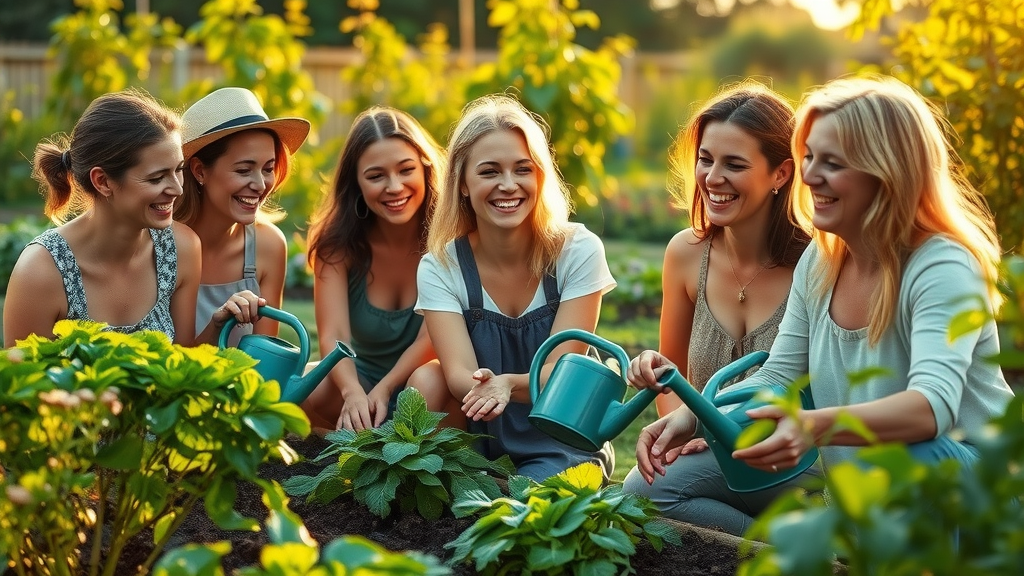
Expert Insights on Gardening and Joyfullness for Women’s Wellness
“Research consistently shows a link between contact with the natural world and higher mental health outcomes in women.”
Leading experts in women’s wellness recognize that gardening offers advantages far beyond the physical. It boosts emotional resilience, enhances creativity, and acts as a direct counter to feelings of isolation or overwhelm. Multiple studies confirm that interacting with gardens or green spaces for even brief periods each week can have measurable effects on physical and mental health. The natural world, it turns out, is not just a background setting for self-care, but a dynamic partner in the journey to wellness.
Women report that beyond the physiological benefits—such as improved cardiovascular health and reduced blood pressure—gardening fosters a sustained sense of purpose. The ritual of nurturing, watching plants grow, and celebrating each harvest fosters a mindset where joyfullness becomes not just possible, but inevitable. The garden, in essence, is both healer and teacher, guiding women toward greater self-discovery and resilience at every stage of life.
Real Stories: Women Reflect on the Joy of Gardening and Joyfullness
Personal stories offer the richest insights into the transformative power of gardening and joyfullness. For some women, the garden is where they first found peace after a major life change or loss. For others, the routine of spending time with a vegetable garden or even a small collection of flowers and plants brought focus during times of stress and transition. These women describe the act of gardening as their steadfast source of joy, a ritual that grounds them and renews their sense of hope and purpose—no matter what life brings.
Many recount how gardening has provided relief from loneliness and isolation, offering a place to make new friends or deepen connections with loved ones. Whether it’s tending a community pie garden or simply arranging flowers on a windowsill, each story highlights how the simple act of growing and nurturing plants has the power to nurture the self. Through their emotional transformations, these women remind us that the joy of gardening—and the joyfullness it brings—is truly universal and available to all.
- Personal essays highlighting emotional transformations
- Stories of finding purpose and peace in gardening
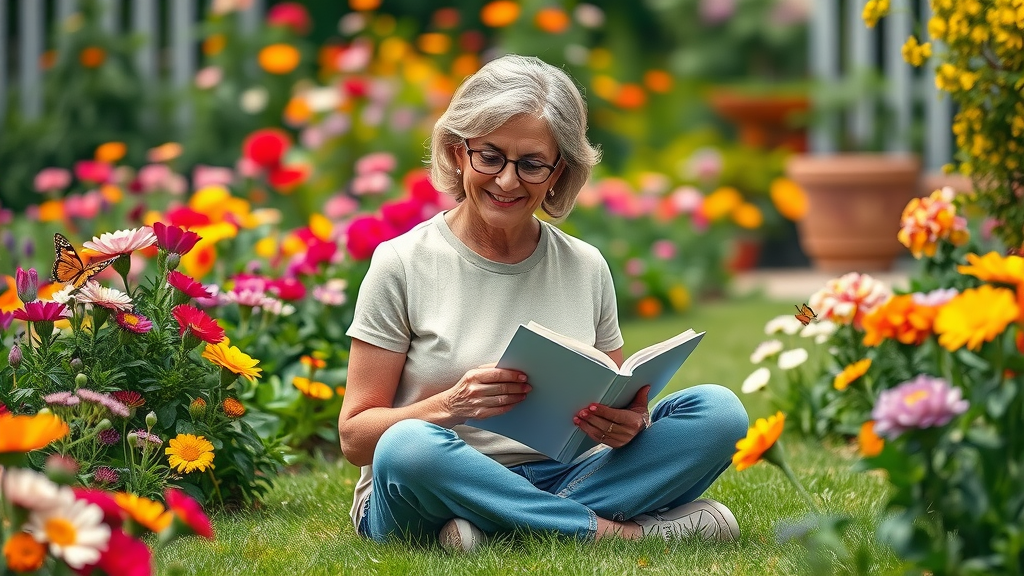
Overcoming Challenges: When Gardening and Joyfullness Don’t Come Easily
Let’s be honest: Not every woman has access to a sprawling green space. For urban women or those with limited mobility, pursuing the joys of gardening can feel overwhelming. The good news is that connection with nature isn’t confined to grand gardens; it thrives in creative solutions—like growing plants in balcony pots, using a bird feeder, or cultivating a mini physic garden on a windowsill.
Busy schedules can also get in the way of gardening and joyfullness, but even carving out a few minutes a day can yield powerful rewards. Simple gardening tasks—watering, pruning, or simply observing growth—anchor you in the present and give you a sense of accomplishment, however small. Overcoming these common barriers helps ensure the therapeutic power of gardening reaches every woman who seeks joy, balance, and a renewed sense of self-worth.
- Tips for urban women with limited green space
- Making time for gardening and joyfullness amidst busy schedules
People Also Ask: Why Does Gardening Make Me So Happy?
Exploring the Science of Joy, Gardening, and Mood Enhancement
Gardening elicits happiness by encouraging the brain to release endorphins and serotonin—chemicals tied to improved mood and decreased stress. The sensory experiences of gardening—from the feel of soil to the scent of flowers—stimulate relaxation and engage the mind in positive, mindful activity. Studies have shown that spending time in green spaces, whether in a vegetable garden or among potted plants, even for just a few hours a day, can significantly reduce symptoms of anxiety and depression. The act of gardening thus becomes a true source of joy as it allows women to nurture life, practice patience, and celebrate daily victories, all of which are beneficial for the gardener’s mental health.
People Also Ask: What Personality Type Likes Gardening?
Personality Traits That Thrive with Gardening and Joyfullness
Individuals who enjoy gardening often exhibit traits such as patience, mindfulness, and an appreciation for subtle beauty. Introverts and those who seek solitude can find sanctuary in gardening, while social personalities thrive in group settings like community gardens. Importantly, gardening and joyfullness attract women who value connecting with nature, seek stress relief, and desire tangible results from their physical effort. While some may have “green thumbs,” the profound impact of gardening isn’t limited by experience or skill—every woman who values growth and self-discovery can benefit from this deeply grounding practice.
People Also Ask: What Is the Joy of Gardening?
Understanding the Deeper Meaning and Joyfullness in Gardening
The joy of gardening is multi-dimensional: It encompasses both the thrill of watching growth habits unfold and the serene feeling of being at one with the natural world. For many women, gardening becomes a ritual that infuses daily life with hope, creativity, and renewal. It is less about creating a successful garden by any external standard and more about finding fulfillment in the process of nurturing and connecting. Joyfullness in gardening means discovering beauty in every phase—from planting to harvest—and realizing that true happiness often blooms in the smallest details.
People Also Ask: What Is the Rule of 3 in Gardening?
Applying the Rule of 3 to Amplify Gardening and Joyfullness
The “Rule of 3” in gardening is a design guideline—grouping plants, flowers, or elements in sets of three to create harmonious and visually pleasing arrangements. For women seeking more joyfullness in their gardening routines, applying the Rule of 3 can amplify both satisfaction and creativity. By planting in trios or focusing on three gardening tasks at a time, you invite balance and flow into your green space. This simple yet effective approach brings a sense of harmony and intentionality, making your garden more rewarding and therapeutic.
Uplifting and inspirational video showing a montage of women gardening through the seasons—from planting spring flowers to harvesting autumn vegetables—showcasing smiles, teamwork, and peaceful moments, with gentle background music and natural ambient sound.
Practical, actionable video demonstrating daily and weekly rituals women can incorporate into their garden routines for enhanced joyfullness and wellness.
FAQs: Your Gardening and Joyfullness Questions Answered
-
How often should I garden for mental health?
Ideally, spending at least 2–3 hours a week in your garden or green space can significantly boost your mental health. Even brief, daily gardening tasks—like watering a potted plant or tending to flowers—can yield noticeable improvements in mood, focus, and wellbeing. The key is regularity rather than duration; consistency helps reinforce positive mental health habits and joyfullness. -
Can gardening improve my social life?
Absolutely. Joining a community garden or sharing gardening experiences with friends or family can help reduce loneliness and isolation. Gardening introduces you to like-minded individuals, fosters new connections, and creates opportunities for shared learning, support, and joyful celebration. This social aspect can be especially empowering for women seeking a sense of community and belonging. -
What small-space gardening tips boost joyfullness?
Growing plants in containers, window boxes, or even a single sunny windowsill can nurture joyfullness. Choose compact, easy-to-care-for varieties, incorporate vertical growing systems, and make your space beautiful with seasonal flowers or colorful foliage. Creative small-space gardening routines bring bursts of joy and the mental health benefits of nature, no matter the size of your home or garden.
Key Takeaways: How Gardening and Joyfullness Empower Women
- Connecting with nature is a core element of wellness
- Joy of gardening is available to every woman, regardless of space
- Gardening builds resilience, mental health, and self-worth
Empower Your Wellness Journey: Subscribe for More Strategies
Ready to embrace gardening and joyfullness as part of your wellness routine? Subscribe for more strategies on how to be a successful woman in every area of your life: http://spotlightonyoursuccess.com
 Add Row
Add Row  Add
Add 




Write A Comment